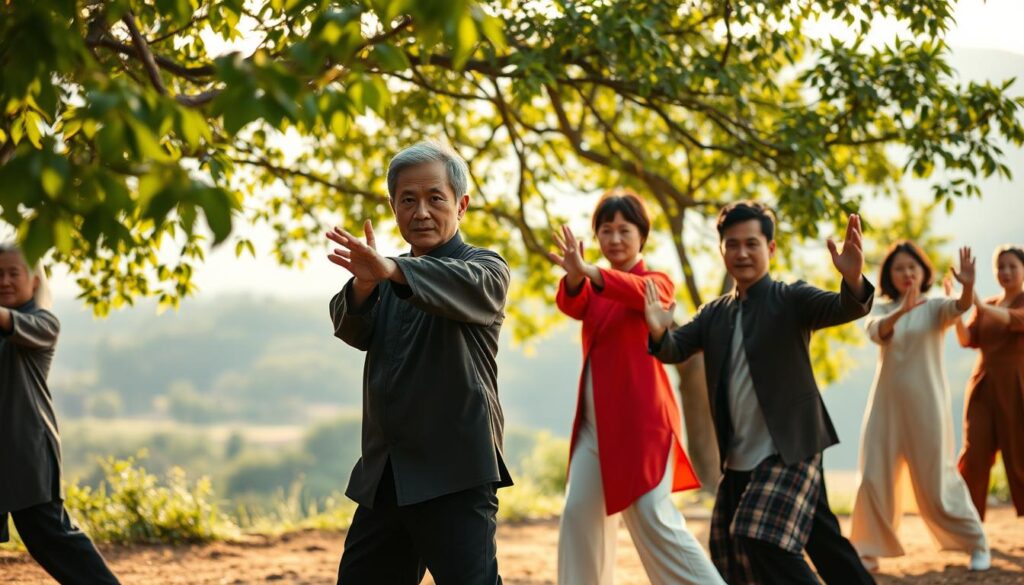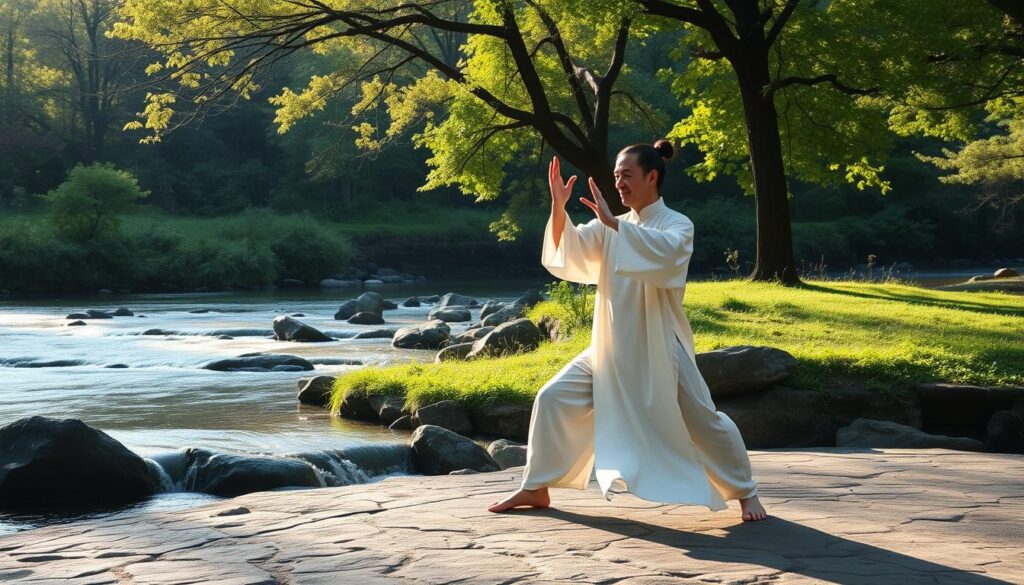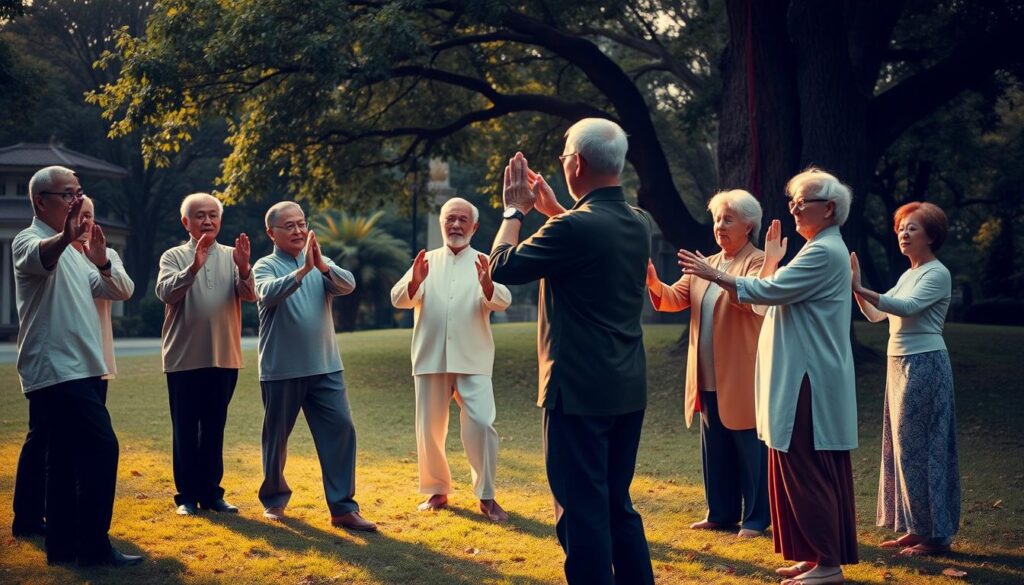You may understand that both qigong and tai chi are ancient Chinese practices for increasing your energy, also relieving stress and anxiety. Sometimes the two get confused. That is because there are a lot of similarities here. While they are closely linked, there are some definite differences between these Far East physical art forms. What follows is a brief overview of how these two disciplines differ.
Consider Qigong as The Parent of Tai Chi
Qigong is a 3,000 year old Taoist tradition, a precursor and contributing factor of tai chi. In other words, tai chi is a form of qigong, even if loosely so. There are Buddhist and Confucian qigong schools, but the Taoist qigong practice is the one which influenced the development of tai chi.
What Are the Literal Meanings of Qigong and Tai Chi?
Both terms refer to a process of energy creation. However, their literal translations are very different.
Qigong (pronounced chi gong by Westerners) translates as “Life Energy Cultivation”. It is defined as a spiritual practice with roots in Chinese philosophy, meditation, medicine and martial arts. Qigong focuses on healing and the treatment of disease as well as meditation.
Tai chi (pronounced tahy jee) is the shortened Western version of the full term t’ai chi ch’uan, which means “Grand Ultimate Fist”. Tai chi is a form of martial arts, though only a small fraction of its followers and practitioners use this meditative and healing practice exclusively for its martial arts and self-defense abilities.
Different Movements That Look the Same
Both tai chi and qigong employ “fluid, slow-motion movements”. To the casual observer, they may appear identical, or at least very similar. However, each practice requires its own physical movements and coordinated abilities.
The many styles of tai chi are actually just variations of the same basic movements. Qigong is often a single move repeated several times, and in some cases requires no movement at all. The focus then is only on breathing. Tai chi focuses rigidly on form, and can take a lifetime to master.
Qigong is a much more versatile, free-form practice, and thereby easier for individuals to adapt to their own personalities and physical abilities. Although it is too basic of a statement, you can consider tai chi a martial art form that also delivers meditative powers. It was developed for combat and self-defense by Chinese military men and Shaolin monks. Qigong can be viewed as a “wellness system” that focuses on health.



